Filter by
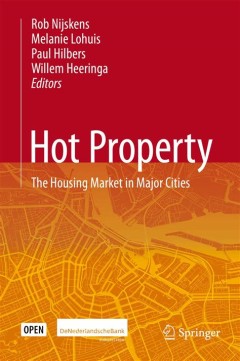
Hot Property = The Housing Market in Major Cities
Dr. Rob Nijskens Rob is an economist in the Financial Stability Division of DNB since 2012, specializing in analyzing financial stability risks in commercial and residential real estate markets. Together with Melanie Lohuis and Willem Heeringa he authored the 2017 DNB Occasional Study “The housing market in major Dutch cities”. He has also written extensively on commercial real estate, bot…
- Edition
- 1
- ISBN/ISSN
- 9783030116743
- Collation
- XVI, 221 ill; lamp
- Series Title
- -
- Call Number
- -
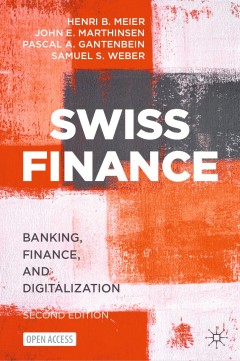
Swiss Finance
How could a small country in the middle of Europe, surrounded by much bigger countries and economic giants like Germany and France and in direct competition with North American and Asian rivals, develop world-class, cutting-edge financial markets? Swiss Finance answers this question, separating myth from reality, by explaining how Switzerland managed dramatic pressures brought to bear on its fi…
- Edition
- 1
- ISBN/ISSN
- 978-3-031-23194-0
- Collation
- XXXVI, 612
- Series Title
- -
- Call Number
- -
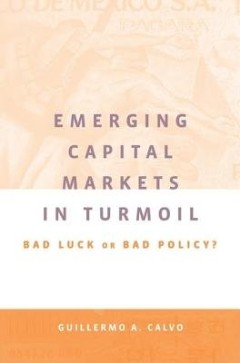
Emerging Capital Markets in Turmoil: Bad Luck or Bad Policy?
Analysis of financial crises in emerging market economies, including Mexico, Argentina, and Russia; traces the evolution of crisis theory and challenges the conventional wisdom.Since the mid-1990s, emerging market economies have been hit by dramatic highs and lows: lifted by large capital inflows, then plunged into chaos by constrained credit and out-of-control exchange rates. The conventional …
- Edition
- -
- ISBN/ISSN
- 9780262269728
- Collation
- 1 online resource (xiii, 547 pages) :illustrations
- Series Title
- -
- Call Number
- -
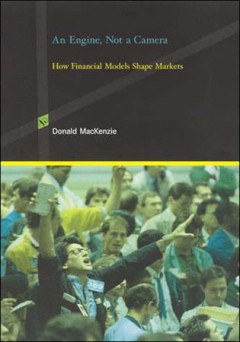
An Engine, Not a Camera: How Financial Models Shape Markets
This pioneering work in the social studies of finance describes how the emergence of modern finance theory has affected financial markets in fundamental ways. Paraphrasing Milton Friedman, the author says that economic models are an engine of inquiry rather than a camera to reproduce empirical facts.OCLC-licensed vendor bibliographic record.
- Edition
- -
- ISBN/ISSN
- 9780262278805
- Collation
- 1 online resource (x, 377 pages) :illustrations.
- Series Title
- -
- Call Number
- -
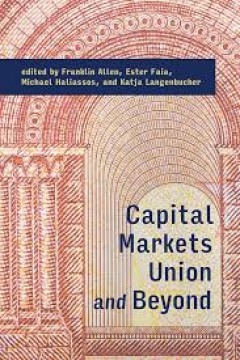
Capital markets union and beyond
OCLC-licensed vendor bibliographic record.
- Edition
- -
- ISBN/ISSN
- 9780262354264
- Collation
- 1 online resource (384 pages).
- Series Title
- -
- Call Number
- -

Banking on democracy :financial markets and elections in emerging countries
Politics matter for financial markets and financial markets matter for politics, and nowhere is this relationship more apparent than in emerging markets. In this book, Santiso investigates the links between politics and finance in countries that have recently experienced both economic and democratic transitions. He focuses on elections, investigating whether there is a 'democratic premium' - wh…
- Edition
- -
- ISBN/ISSN
- 9781461931874
- Collation
- 1 online resource
- Series Title
- -
- Call Number
- -

Market discipline across countries and industries
Papers presented at a conference cosponored by the Federal Reserve Bank of Chicago and the Bank for International Settlements, held on Oct. 30 to Nov. 1, 2003, at the Federal Reserve Bank of Chicago.Leading academics and policymakers address the theory of market discipline and consider evidence across different industries and countries.The effectiveness of market discipline--the strong built-in…
- Edition
- -
- ISBN/ISSN
- 9780262269032
- Collation
- 1 online resource (xii, 449 pages) :illustrations
- Series Title
- -
- Call Number
- -
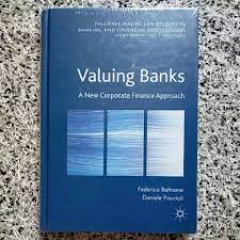
Valuing Banks A New Corporate Finance Approach
This book aims to overcome the limitations the variations in bank-specifics impose by providing a bank-specific valuation theoretical framework and a new asset-side model. The book includes also a constructive comparison of equity and asset side methods. The authors present a novel framework entitled, the “Asset Mark-down Model”. This method incorporates an Adjusted Present Value model, whi…
- Edition
- -
- ISBN/ISSN
- 978-1-137-56142-8
- Collation
- -
- Series Title
- -
- Call Number
- -
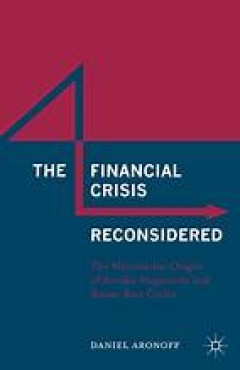
The Financial Crisis Reconsidered
In The Financial Crisis Reconsidered, Aronoff challenges the conventional view that reckless credit produced the US housing boom and the financial crisis, explaining how the large current account deficit, and its mercantilist origin, was a more fundamental cause. He also demonstrates that the decision to provide relief for bank creditors rather than underwater homeowners was responsible for the…
- Edition
- 1
- ISBN/ISSN
- 978-1-137-54789-7
- Collation
- XVII, 291
- Series Title
- -
- Call Number
- -
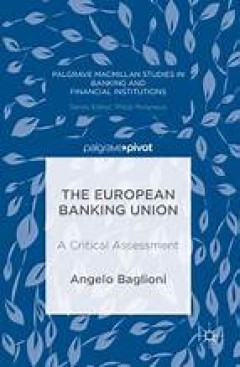
The European Banking Union
Why did European policy-makers introduce the Banking Union? Which are its main features? How does it affect banks and their customers? This book tries to answer these questions, by providing a clear description of the building blocks of the banking union, and by discussing the issues that still remain unanswered.
- Edition
- 1
- ISBN/ISSN
- 978-1-137-56314-9
- Collation
- XIII, 136, 8 b/w illustrations
- Series Title
- Palgrave Macmillan Studies in Banking and Financial Institutions
- Call Number
- -
 Computer Science, Information & General Works
Computer Science, Information & General Works  Philosophy & Psychology
Philosophy & Psychology  Religion
Religion  Social Sciences
Social Sciences  Language
Language  Pure Science
Pure Science  Applied Sciences
Applied Sciences  Art & Recreation
Art & Recreation  Literature
Literature  History & Geography
History & Geography